Spring 2022 Cancer Policy Roundtable
NCCS hosted the 22nd Spring Cancer Policy Roundtable (CPR) on March 30, 2022. The Cancer Policy Roundtable (CPR) is a semi-annual meeting convening stakeholders in the cancer community. This year’s Spring Cancer Policy Roundtable featured a survivor keynote delivered by Jamie Ledezma, a 15-year breast cancer survivor and member of NCCS’s Cancer Policy and Advocacy Team (CPAT) Steering Committee. In our panel discussion titled “Cancer Care During the Pandemic and Beyond: Where Do We Go from Here?,” health care professionals, health policy experts, and technology innovators discussed cancer care during the pandemic and options for improving cancer care and survivorship care delivery.
Senator Amy Klobuchar (D-MN) shared more about her breast cancer diagnosis during the pandemic, as well as insights into the cancer legislation she continues to champion. Dr. Danielle Carnival from the White House Office of Science and Technology Policy joined us to discuss the Cancer Moonshot. Dr. Ned Sharpless, the Director of the National Cancer Institute, brought the event to a close, addressing the impact of the COVID-19 pandemic on cancer prevention, diagnosis, care, and research, and answering questions from attendees in a lengthy Q&A.
Spring 2022 CPR Executive SummarySpring 2022 CPR Sessions
Opening Keynote: Jamie Ledezma, JD
15-Year Breast Cancer Survivor
“How can the fate of our family’s well-being be contingent on where we live and the quality of care we’re receiving in one community over the other? How can our family’s wellness and sense of ability to move forward be dependent on our zip code?”
— Jamie Ledezma, JD
Summary
Watch Jamie’s Address
Cancer Care During the Pandemic and Beyond: Where Do We Go from Here?
Panel Discussion
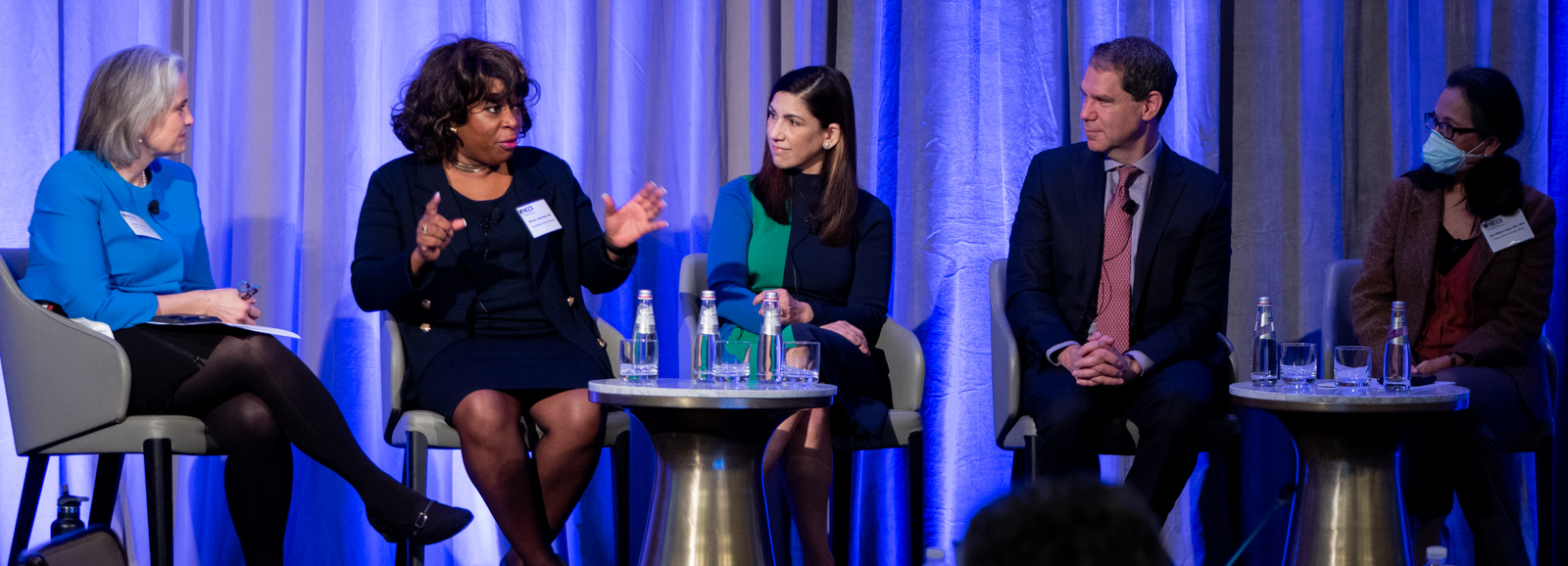
Penn Center for Cancer Care Innovation
Abramson Cancer Center
Norma L. Day-Vines, PhD
Hurdle
Johns Hopkins School of Education
Jamie Ledezma, JD
15-year Breast Cancer Survivor
NCCS Cancer Policy & Advocacy Team (CPAT) Steering Committee Member
Sidney Kimmel Cancer Center
Jefferson Health New Jersey
NCCS Board Member
Shelley Fuld Nasso, MPP (moderator)
CEO, NCCS
Summary
Panel Speakers

Jamie Ledezma, JD
Jamie Ledezma was diagnosed with breast cancer at 27 years old and 14 weeks pregnant. With her new reality, Jamie quickly discovered that the journey of living with cancer and navigating the healthcare system was often confusing and overwhelming despite her training as a lawyer and policy wonk.
As a young adult cancer survivor who has struggled navigating her own survivorship care, Jamie volunteers with organizations to support the adoption of comprehensive whole-person survivorship care plans. She is a member of the Cancer Policy and Advocacy Team with the National Coalition for Cancer Survivorship (NCCS). Jamie also volunteers as a cancer rights attorney in hopes of helping empower other patients and their families with resources to access quality care and navigate the myriad of legal issues related to a cancer diagnosis.
Jamie is a professor at Southwestern Community College in San Diego where she lives with her husband and 14.5 year old son, Blake.
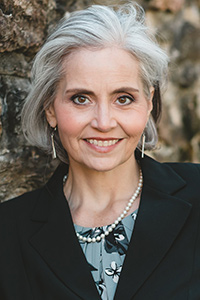
Shelley Fuld Nasso, MPP
Shelley Fuld Nasso, MPP has served as Chief Executive Officer of NCCS since October 2013. Prior to joining NCCS, Shelley served in leadership roles at Susan G. Komen, where she leveraged Komen’s grassroots network in Washington, DC, and in state capitals. Under her leadership, Komen successfully secured $80 million in state funding for cancer screening and treatment for uninsured and under-insured women.
Shelley has also served as Director of Community Philanthropy at The Dallas Foundation and held management positions at communications and technology enterprises. She is a graduate of Rice University and holds a Master of Public Policy from the Harvard Kennedy School.
Shelley’s commitment to the work of NCCS is strongly tied to the experiences in the cancer care system of her dear friend, Dr. Brent Whitworth, a beloved physician who was diagnosed with stage IV cancer days before his 42nd birthday and who passed away 19 months later. Through Brent’s experiences, Shelley witnessed the strengths and flaws of the cancer care system and embraces the notion that policy change can make cancer care better for patients and caregivers.
Shelley and her husband Michael live in Maryland and are the parents of three young boys.
Message from Senator Amy Klobuchar (D-MN)
Sen. Amy Klobuchar (D-MN)
Breast Cancer Survivor
Summary
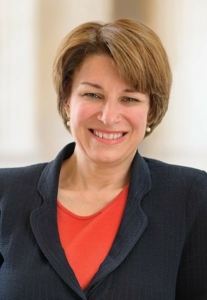
Senator Amy Klobuchar (D-MN)
Senator Amy Klobuchar (D-MN) is the first woman elected to represent the State of Minnesota in the United States Senate. She has served the people of her state in the US Senate since 2007.
Throughout her time in Congress, Senator Klobuchar has been a fierce supporter of increased and sustained funding for the NIH to support research into cures for cancer and other diseases.
The topic of cancer and early detection is personal for Senator Klobuchar. After delaying her mammogram because of the pandemic, she learned she had stage IA breast cancer following a routine mammogram last February. After her own cancer journey, she acknowledged that there may still be thousands of people with undetected cancer because they postponed preventative care. To ensure people have the resources and information they need to access this potentially lifesaving care, she introduced the bipartisan Preventative Care Awareness Act to promote screenings and create a public health task force to encourage preventative care and address disparities in these services.
Cancer Moonshot
Danielle Carnival, PhD
White House Cancer Moonshot Coordinator,
White House Office of Science and Technology Policy
“You have our commitment and our partnership to make significant progress to end cancer as we know it.”
— Danielle Carnival, PhD
Summary
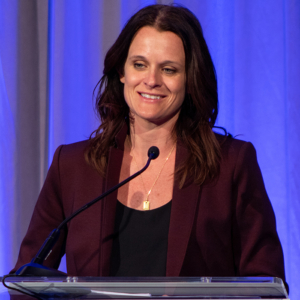 Dr. Danielle Carnival shared details about President Biden’s Cancer Moonshot 2.0 initiative and highlighted the effort’s goals. She began by calling for hope. She said there was so much reason to hope, which is why Biden reignited the Cancer Moonshot and set new goals to decrease the death rate of cancer by 50% over the next 25 years and improve the experience of survivors and families living with and surviving cancer. The Moonshot’s ultimate goal is to “end cancer as we know it.”
Dr. Danielle Carnival shared details about President Biden’s Cancer Moonshot 2.0 initiative and highlighted the effort’s goals. She began by calling for hope. She said there was so much reason to hope, which is why Biden reignited the Cancer Moonshot and set new goals to decrease the death rate of cancer by 50% over the next 25 years and improve the experience of survivors and families living with and surviving cancer. The Moonshot’s ultimate goal is to “end cancer as we know it.”
She acknowledged the decades of progress in the cancer field and celebrated the fact that more people were
surviving cancer and living longer after diagnosis. However, she stressed the need for additional goals to improve care for cancer patients and their loved ones. She explained that too many patients and families had to navigate cancer and survivorship on their own and called for better support to help patients navigate cancer diagnosis, treatment, and survivorship and overcome medical, financial, and emotional burdens brought on by cancer.
Through the Cancer Moonshot and other recent developments, like the funding and creation of ARPA-H and the establishment of President Biden’s Cancer Cabinet, which aims to leverage a whole-of-government response, the Biden administration plans to develop new ways to prevent,detect, and treat cancer and ensure the necessary tools reach more Americans.
Danielle Carnival, PhD
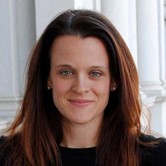 Danielle Carnival, PhD most recently served as the chief of staff and senior policy director for the White House Cancer Moonshot Task Force. Over her more than six years at the White House, she leveraged her technical scientific expertise to develop programs and policies to make progress on Obama Administration goals in partnership with Federal agencies and the private, academic, and philanthropic sectors. This work spanned areas of health and biomedical policy, including cancer and neuroscience, science, technology, engineering, and mathematics (STEM) education, and advancing equity and promoting diversity in STEM fields, among others.
Danielle Carnival, PhD most recently served as the chief of staff and senior policy director for the White House Cancer Moonshot Task Force. Over her more than six years at the White House, she leveraged her technical scientific expertise to develop programs and policies to make progress on Obama Administration goals in partnership with Federal agencies and the private, academic, and philanthropic sectors. This work spanned areas of health and biomedical policy, including cancer and neuroscience, science, technology, engineering, and mathematics (STEM) education, and advancing equity and promoting diversity in STEM fields, among others.
Ms. Carnival assumed leadership roles for some of the Administration’s signature initiatives and events, most notably, the White House Cancer Moonshot, White House Science Fairs, College Opportunity Days of Action, and Computer Science for All and Diversity in STEM initiatives.
Ms. Carnival received her doctorate in neuroscience from Georgetown University and her bachelor’s degree from Boston College.
“Cancer survivorship is an area where the National Cancer Institute will continue to invest.”
— Norman Sharpless, MD
Summary
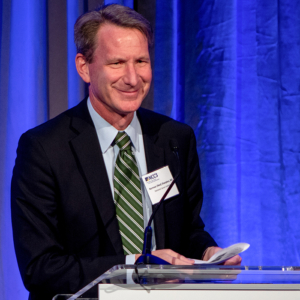 In the closing keynote, Dr. Ned Sharpless, Director of the National Cancer Institute (NCI), addressed the impact of the COVID-19 pandemic on cancer prevention, diagnosis, care, and research, and shared more about NCI’s latest work. He celebrated the steady budget increases to NCI since 2015 which reflect the broad bipartisan support for cancer research, and the support from President Biden.
In the closing keynote, Dr. Ned Sharpless, Director of the National Cancer Institute (NCI), addressed the impact of the COVID-19 pandemic on cancer prevention, diagnosis, care, and research, and shared more about NCI’s latest work. He celebrated the steady budget increases to NCI since 2015 which reflect the broad bipartisan support for cancer research, and the support from President Biden.
Despite sustained investments in cancer, the pandemic gravely impacted cancer screening, care, and treatment. Dr. Sharpless identified the disruption the pandemic caused to cancer care, sharing that NCI estimated the US would experience increases in cancer mortality over just a few years due to the disruption in care.
In response to the pandemic, NCI took part in a series of projects, including embracing innovative and popular solutions like telehealth to ensure patients could enroll in clinical trials and producing a report addressing vaccine hesitancy. NCI also partnered with the First Lady Dr. Jill Biden to direct public attention to cancer screening to counteract the disruption in screening caused by the pandemic.
Finally, Dr. Sharpless highlighted what he called a national epidemic of cancer survivors that will result from cancer interventions like the Cancer Moonshot. While these interventions will save lives, survivors will nevertheless be left with survivorship challenges. He stressed the need for survivorship research, confirmed NCI’s growing interest in survivorship and discussed the accomplishments of the NCI’s Office of Cancer Survivorship. In response to this focus on survivorship, NCI has continued investing in survivorship grants, which have increased exponentially in the last 20 years.
Cancer Policy Roundtable 2022 Sponsors
(as of 3/14/2022)



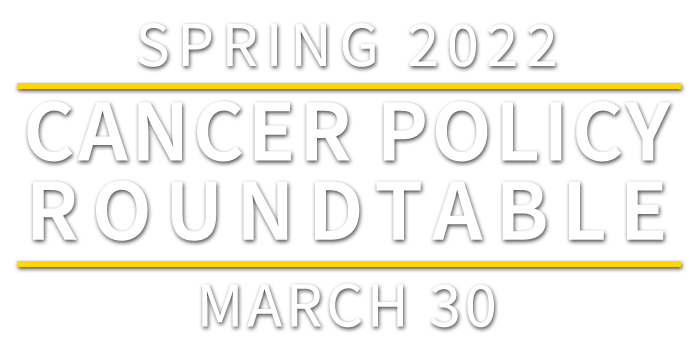
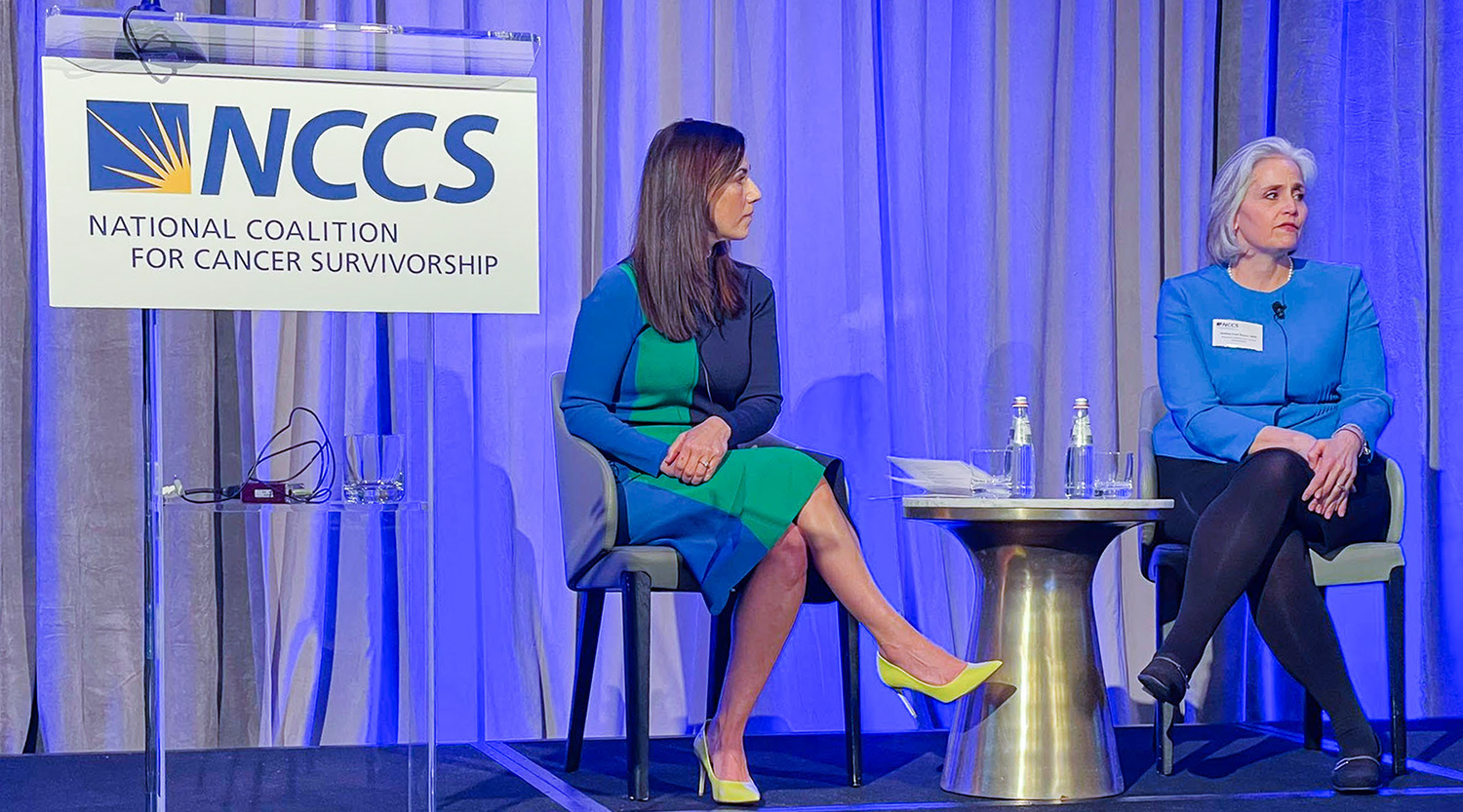 Now with no evidence of disease, she strives to raise awareness of the gaps in survivorship care. In the keynote, Ms. Ledezma called attention to the challenges of transitioning from active care to survivorship care as well as living one’s life after a cancer diagnosis, emphasizing the importance of providing interventions along the continuum of survivorship in varying doses and different stages of life. She drew attention to the existence of barriers within systems, including the health care system, drawing on her family’s move to a new city as an example.
Now with no evidence of disease, she strives to raise awareness of the gaps in survivorship care. In the keynote, Ms. Ledezma called attention to the challenges of transitioning from active care to survivorship care as well as living one’s life after a cancer diagnosis, emphasizing the importance of providing interventions along the continuum of survivorship in varying doses and different stages of life. She drew attention to the existence of barriers within systems, including the health care system, drawing on her family’s move to a new city as an example.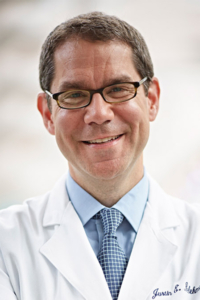
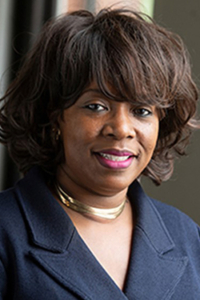
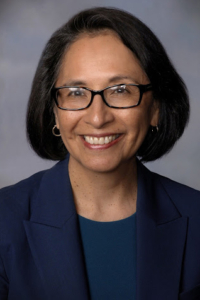
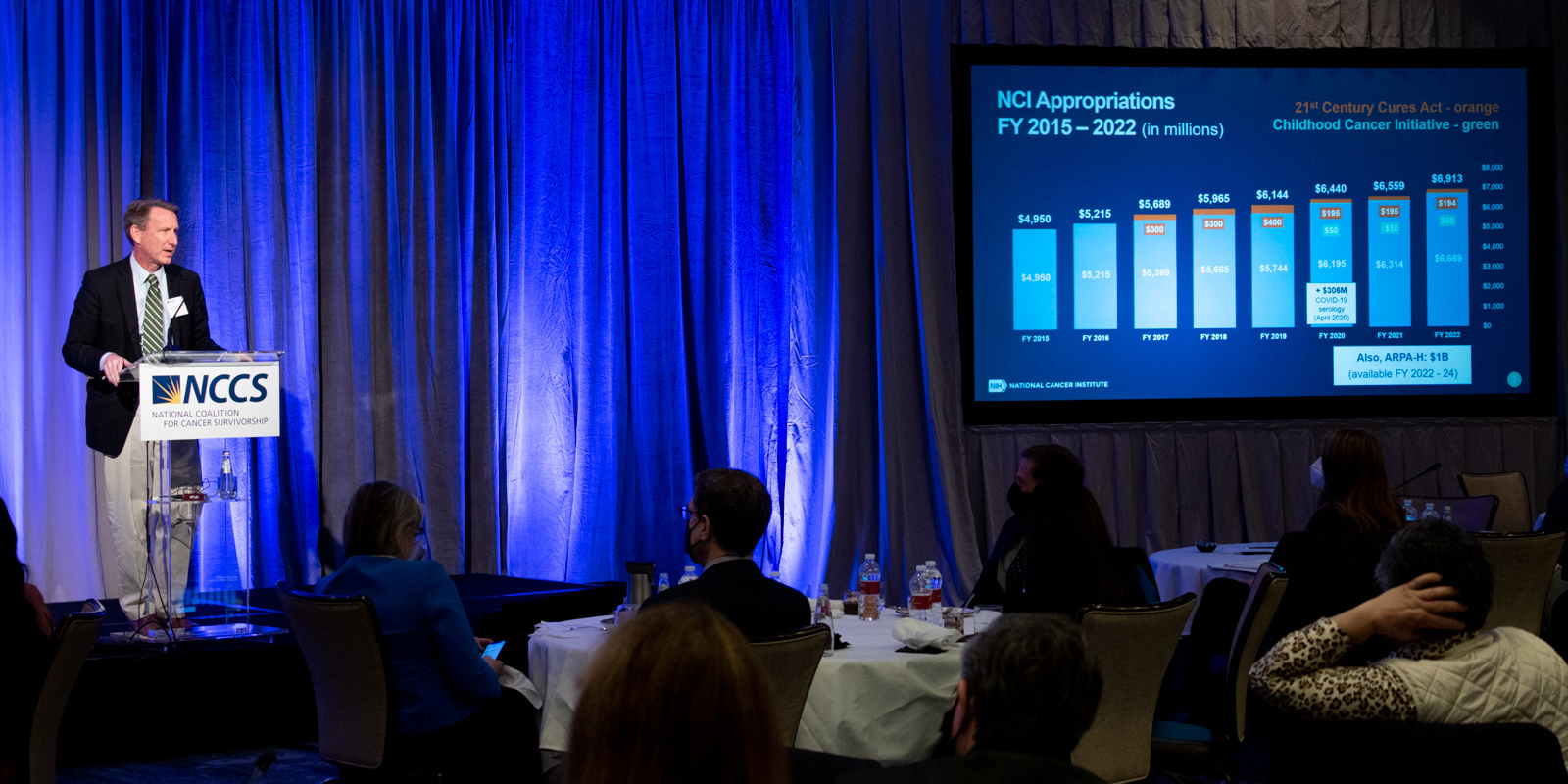
 Norman E. “Ned” Sharpless, MD, has served as the 15th director of the National Cancer Institute (NCI) since October 2017. Prior to his appointment, Dr. Sharpless served as the director of the Lineberger Comprehensive Cancer Center at the University of North Carolina (UNC).
Norman E. “Ned” Sharpless, MD, has served as the 15th director of the National Cancer Institute (NCI) since October 2017. Prior to his appointment, Dr. Sharpless served as the director of the Lineberger Comprehensive Cancer Center at the University of North Carolina (UNC).
